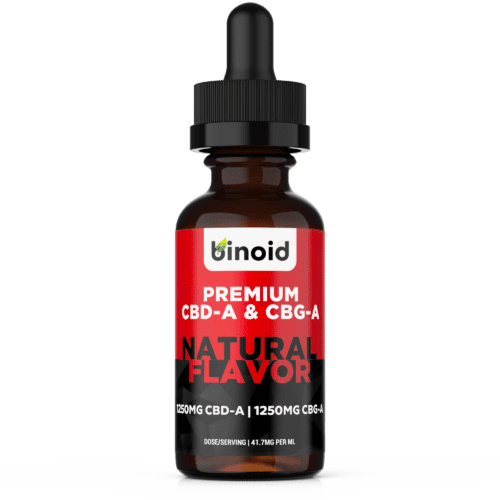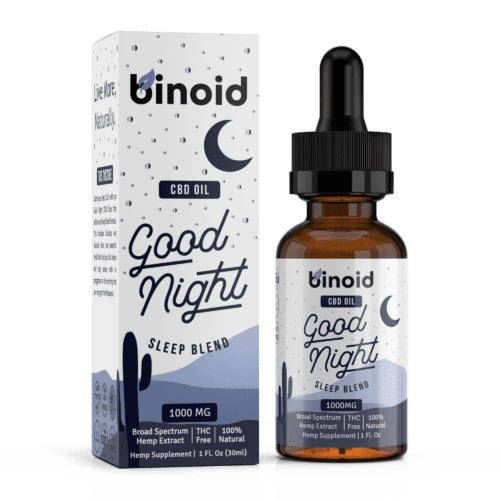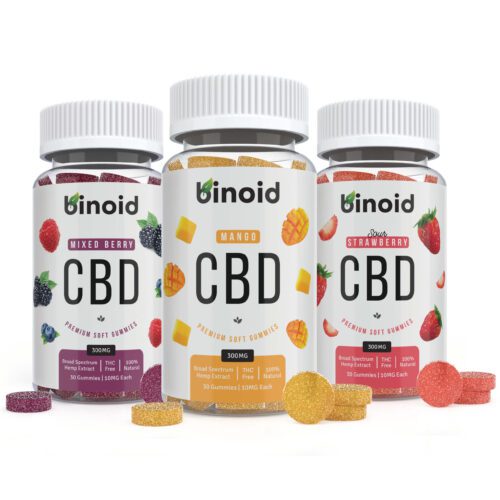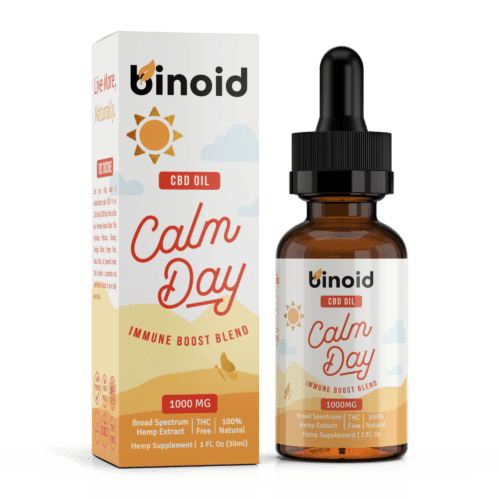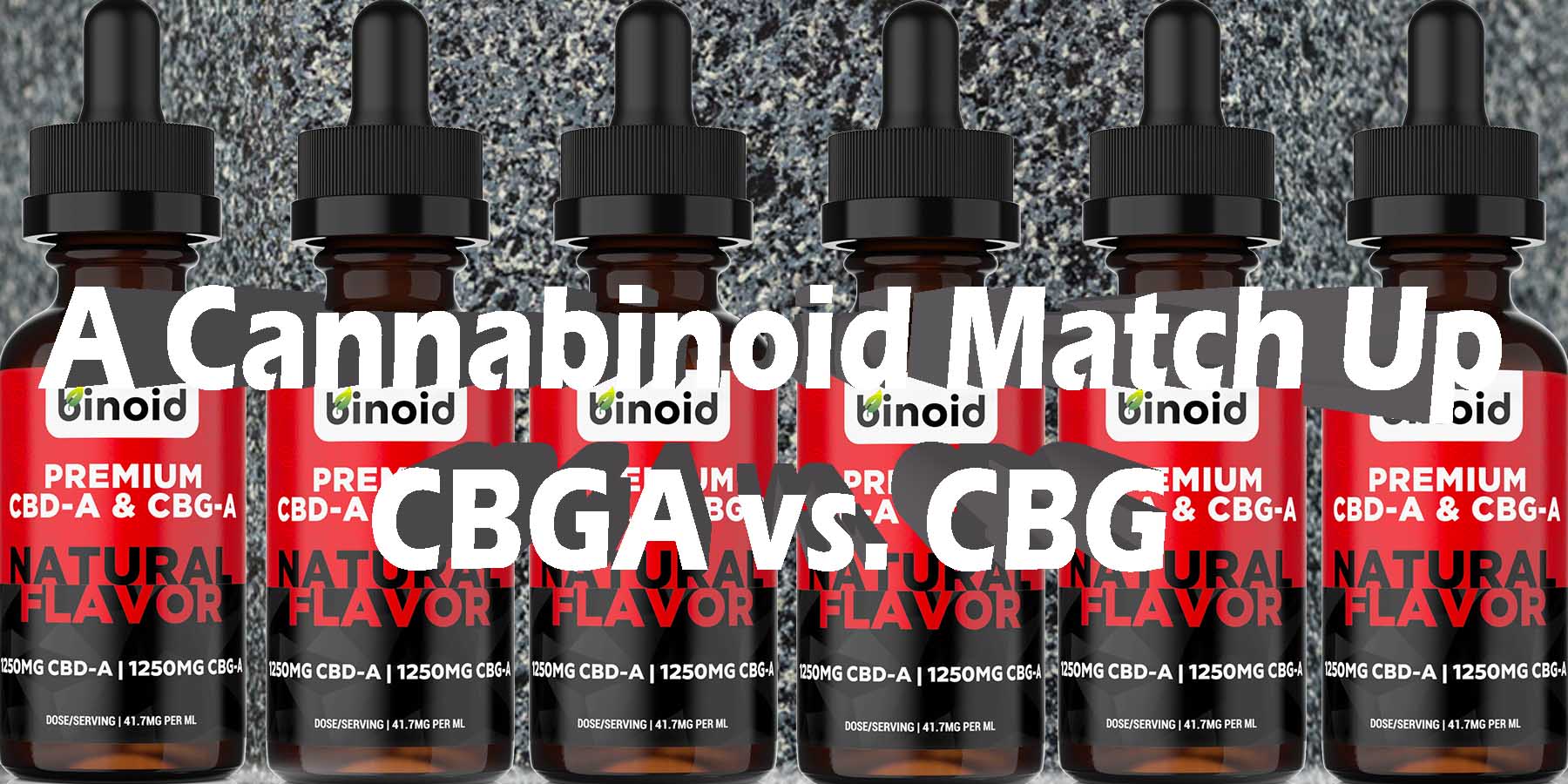
CBGA vs. CBG: What You Need To Know
We know that a lot of people have been hearing about Cannabigerolic Acid (CBGA), and are therefore, pretty confused about how it relates to CBG, what makes it unique, and how to take it compared to other cannabinoids we’re more familiar with. CBGA is simply the raw form of cannabigerol (CBG), and while that sounds simple enough, the implications are actually extraordinary as we are now discovering just how much CBGA is capable of that makes it a one-of-a-kind cannabinoid.
Although there has been quite an emphasis on intoxicating cannabinoids these last couple of years, it is important to remember that the hemp plant’s non-psychoactive compounds can be extremely valuable to the human body.
So, how does CBGA measure up to its post-decarboxylated twin, CBG?
To Buy CBGA Products Click Here
CBGA (Cannabigerolic Acid)
Origins: Again, Cannabigerolic Acid is the raw precursor to cannabigerol, acting as an acidic cannabinoid that exists naturally in the raw flower of the plant. CBGA is the “mother cannabinoid”, since as the plant matures, CBGA naturally gets converted into Cannabidiolic Acid (CBDA), and tetrahydrocannabinolic acid (THCA), which are then converted into cannabidiol (CBD) and tetrahydrocannabinol (THC), respectively, following the decarboxylation process.
Cannabigerolic Acid is basically the result of leaving the cannabinoid intact rather than converting it into CBG through decarboxylation, which, for those unfamiliar with the term, refers to applying heat to the compounds of hemp to unlock certain desirable properties. Best example of this is heating cannabis flower, usually done through smoking. It turns THCA, a non-psychoactive cannabinoid, into THC, a cannabinoid capable of delivering a potent high.
Psychoactive Properties: Cannabigerolic Acid isn’t an intoxicating cannabinoid. No raw cannabinoid is intoxicating as psychoactive properties associated with these compounds are only activated once they have been decarboxylated. But, CBGA does not have inherent psychoactive properties that are activated following this process, as CBG is completely non-intoxicating. This means that even in high doses, CBGA will not get you high.
Other Properties Associated with CBGA
Now, we can take a look at the research that has gone into understanding CBGA, as its properties are one-of-a-kind and distinctive from cannabidiol. While they do share some overall effects in common, the means through which they deliver these effects are distinctive since they are ultimately two different compounds.
- Properties Related to Epilepsy: Studies show may offer particularly powerful neuroprotective properties, which stimulate neurogenesis, protect the neurons in the brain from damage and strengthen neural pathways that lead to healthy brain function. Specifically, CBGA may be a potent cannabinoid when it comes to epilepsy, as researchers have found that the cannabinoid played a role in reducing severity of seizure activity.
- Cardiovascular Properties: Research shows that CBGA can reduce oxidative stress by addressing the imbalance between free radicals and antioxidants that plays a big role in maintaining cardiovascular function. Oxidative stress has been linked to heart disease and other cardiovascular problems, which are responsible for an alarming number of deaths in our country.
- Metabolism Regulation: CBGA may offer a regulatory effect on processes related to the metabolism, which could have implications when it comes to maintaining a healthy metabolism and addressing metabolic disorders that can lead to poor health. This area of research is very new, and researchers are only beginning to test more specific applications.
- Properties Relating to SARS-CoV-2: In January, 2022, a study was published showing that CBGA may play a role in minimizing the effects of SARS-CoV-2, the virus that causes COVID, when combined with CBDA. It seems that when oral doses of these cannabinoids were administered, patients infected with the virus experienced milder symptoms. The researchers discovered that these cannabinoids attach themselves to the spike protein of the virus to prevent it from infiltrating the cells of the lungs and other organs of the body.
Legality: Cannabigerolic Acid is a legal cannabinoid under federal law (2018 Farm Bill), and it’s legal in all 50 states across the country. There are no restrictions pertaining to product type, purchase amount, possession amount, or product concentration.
-
Product on sale
 Binoid Good Night CBD Oil – Sleep Blend$28.99
Binoid Good Night CBD Oil – Sleep Blend$28.99$64.99
CBG (Cannabigerol)
Origins: Cannabigerol is a cannabinoid found in the hemp plant that acts as the precursor to CBD and THC. CBG is abundant in the raw hemp plant material prior to the plant reaching its full maturity, at which point it’s converted into the latter two cannabinoids.
Psychoactive Properties: Cannabigerol is completely non-intoxicating, even in high doses, because CBG does not have any psychoactive properties, skipping over the CB1 receptors in the brain that are stimulated by THC compounds.
Other Properties Associated with CBG
Now, let’s move onto the non-psychoactive properties of cannabigerol, which have been studied more extensively than those of CBGA.
- Influence on Serotonin and GABA: Research has shown us that CBG acts on serotonin and GABA receptors in the brain in a way that can have regulatory effects on mood. These neurotransmitters have major implications when it comes to both anxiety and depression, and an imbalance of them is seen in those who suffer from a variety of mood disorders.
- Bladder Regulation: CBG seems to be uniquely capable of acting on cannabinoid receptors in the bladder, and researchers are suggesting that this could have positive implications for those who struggle with incontinence issues.
- Anti-Inflammatory Properties: CBG is best known for its anti-inflammatory activity, as the cannabinoid seems to concentrate its efforts on cannabinoid receptors that are involved in the body’s inflammatory response. This could offer some kind of effect to those with physical discomfort, inflammatory digestive problems and other forms of inflammation.
- Appetite Effects: CBG is known as an appetite stimulant, which is something that it shares in common with many cannabinoids. CBG can therefore increase a person’s desire to eat food throughout the day, ensuring that they get their required amount of calories and nutrients.
Legality: Like CBGA, CBG is a fully legal cannabinoid, both federally and throughout all 50 states. Again, there are no restrictions on how it may be taken or how much may be purchased at any given time.
-
Product on sale
 Binoid CBD Gummies$26.99
Binoid CBD Gummies$26.99$49.99
CBGA or CBG: Why Not Both?
It’s obvious that both CBGA and CBG boast an array of properties that can enhance our daily lives. Question then becomes, which compound is right for you? Well, one of the many awesome things about cannabinoids is that it doesn’t have to be an “either/or” situation. You can simply incorporate both compound types into your daily life, since they can work together in the body in a complementary way. Both CBGA and CBG have distinctive properties that make them unique from one another, and we know that researchers will discover even more uses for them as time goes on now that they’re starting to really gain popularity.
Note: If you’re currently on any medications or are simply looking to take either cannabinoid for the first time, it is best to speak with your doctor first. A physician has the access to your medical records, so they can make the proper determination if CBG or CBGA is right for you.
Binoid is always developing new cannabinoid-based formulas, so you can expect to find different CBGA products on our site, each made with the same phenomenal quality standards that we’ve built our reputation on.
To Buy CBGA Products Click Here
-
Product on sale
 Binoid Calm Day CBD Oil – Immune Boost$28.99
Binoid Calm Day CBD Oil – Immune Boost$28.99$64.99

